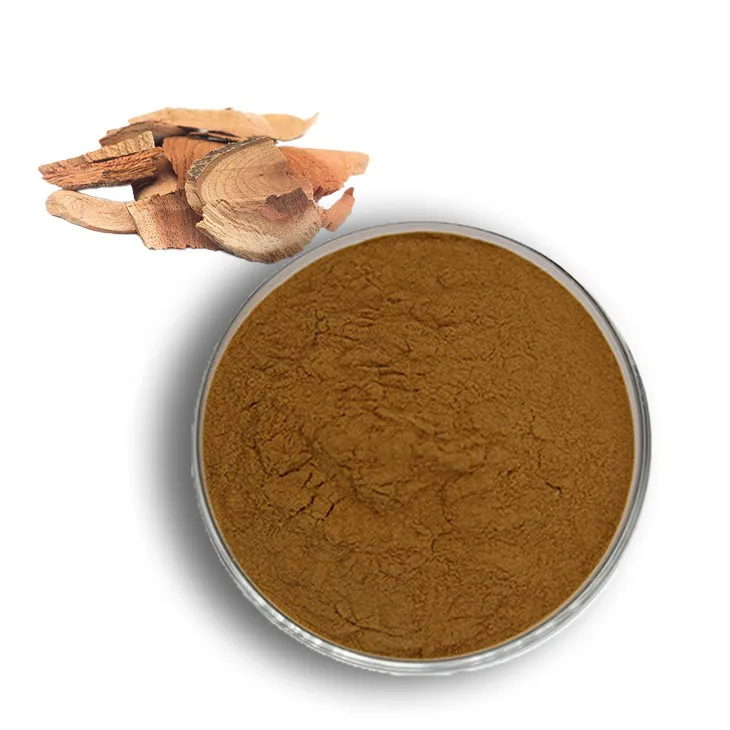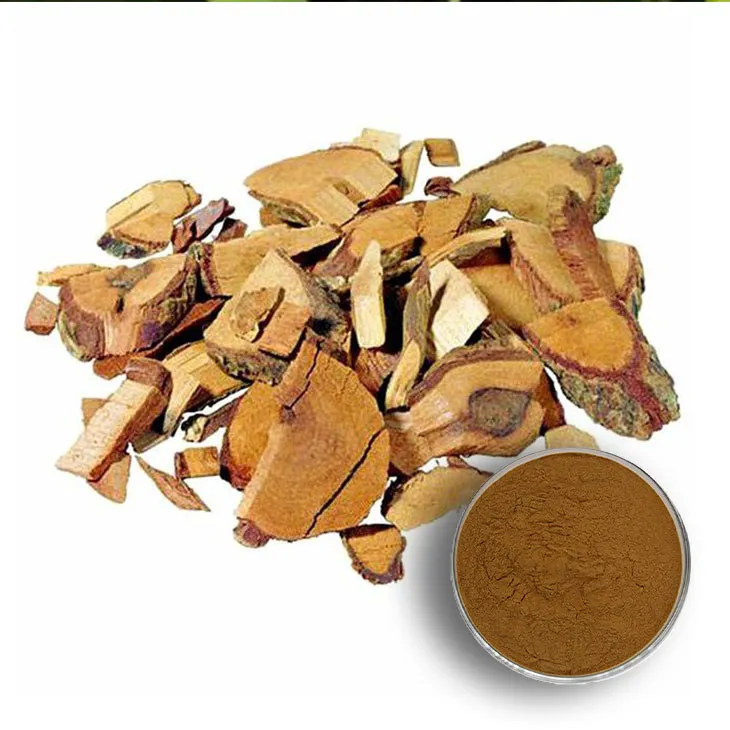- 0086-571-85302990
- sales@greenskybio.com
Is thunder god vine extract beneficial for diabetes? Are these all safe and suitable for diabetic patients?
2024-11-12

1. Introduction
Diabetes has become a global health concern, and the search for effective and safe natural remedies has been on the rise. Thorny Elaeagnus, also known as Elaeagnus pungens, has been used in traditional medicine for various purposes. In recent years, its extract has attracted attention in relation to diabetes management. However, it is crucial to comprehensively analyze its potential benefits and safety for diabetic patients.

2. The Potential Benefits for Diabetes
2.1 Impact on Insulin Sensitivity
Insulin sensitivity is a key factor in diabetes. Some scientific studies suggest that Thorny Elaeagnus extract may play a role in enhancing insulin sensitivity. The active compounds in the extract might interact with cells in the body, particularly muscle, fat, and liver cells. These cells are important targets for insulin action. For example, certain constituents could modulate intracellular signaling pathways involved in insulin - mediated glucose uptake. In muscle cells, this could potentially lead to an increased ability to take up glucose from the bloodstream in response to insulin, which is often impaired in diabetic patients.
2.2 Influence on Glucose Metabolism
Glucose metabolism is complex and disrupted in diabetes. The extract of Thorny Elaeagnus may have a positive impact on this process. It could affect enzymes involved in glucose breakdown and synthesis. For instance, it might regulate the activity of enzymes such as hexokinase, which is crucial for the first step of glucose phosphorylation in cells. By influencing these enzymes, the extract may help to normalize blood glucose levels. Additionally, it may also play a role in hepatic glucose production. In the liver, excessive glucose production is a common problem in diabetes, and the extract might help to inhibit this over - production, thus contributing to better glycemic control.
2.3 Effects on Diabetic Complications
Diabetic complications can be debilitating and life - threatening. Thorny Elaeagnus extract has shown some potential in preventing or alleviating these complications. Oxidative stress is a major contributor to diabetic complications, and the extract is rich in antioxidants. These antioxidants can scavenge free radicals, which are highly reactive molecules that can damage cells and tissues in diabetic patients. For example, they can protect the endothelial cells lining the blood vessels from oxidative damage. This is important as endothelial dysfunction is an early event in the development of diabetic vascular complications such as atherosclerosis and retinopathy. Moreover, the extract may also have anti - inflammatory properties. Chronic inflammation is another factor associated with diabetic complications, and by reducing inflammation, the extract could potentially slow down the progression of complications such as neuropathy and nephropathy.

3. Safety Concerns
3.1 Possible Interactions with Medications
One of the major safety concerns for diabetic patients is the potential interaction between Thorny Elaeagnus extract and medications. Many diabetic patients are on medications such as metformin, sulfonylureas, or insulin. The extract may interact with these drugs, either enhancing or reducing their effectiveness. For example, if the extract has a hypoglycemic effect on its own and is combined with hypoglycemic drugs, it could lead to dangerously low blood sugar levels (hypoglycemia). On the other hand, it could also interfere with the absorption or metabolism of medications, potentially reducing their efficacy. Therefore, it is essential for diabetic patients considering using the extract to consult their healthcare providers to avoid any adverse drug - extract interactions.
3.2 Individual Differences
Every individual is unique, and this also applies to how they respond to Thorny Elaeagnus extract. Some people may be more sensitive to the active compounds in the extract, while others may tolerate it better. Genetic factors, underlying health conditions, and lifestyle factors can all influence an individual's response. For instance, a person with a pre - existing liver or kidney condition may be at higher risk of experiencing adverse effects from the extract, as these organs are involved in the metabolism and excretion of the compounds in the extract. Additionally, lifestyle factors such as diet and exercise can also modulate the effects of the extract. A person with a high - sugar diet may not experience the same benefits from the extract as someone with a balanced diet.

4. Conclusion
In conclusion, Thorny Elaeagnus extract shows some potential benefits for diabetes in terms of improving insulin sensitivity, glucose metabolism, and preventing diabetic complications. However, significant safety concerns exist, particularly in relation to possible interactions with medications and individual differences. Diabetic patients should not use the extract without first consulting their healthcare providers. More research is also needed to further elucidate the mechanisms of action of the extract, its long - term safety, and its effectiveness in different subgroups of diabetic patients. Only through careful consideration and further scientific investigation can we determine whether Thorny Elaeagnus extract can be a valuable addition to diabetes management.

FAQ:
1. What is Thorny elaeagnus extract?
Thorny elaeagnus extract is a substance derived from the Thorny elaeagnus plant. It contains various bioactive components which are being studied for their potential effects on health, including in relation to diabetes.
2. How does Thorny elaeagnus extract affect insulin sensitivity?
Some scientific research suggests that certain components in Thorny elaeagnus extract may enhance insulin sensitivity. It might work by influencing the signaling pathways related to insulin action in cells. However, more research is needed to fully understand the mechanisms and the extent of this effect.
3. Can Thorny elaeagnus extract improve glucose metabolism?
There is evidence indicating that it may have a positive impact on glucose metabolism. It could potentially help in regulating blood glucose levels by affecting processes such as glucose uptake in cells and glycogen synthesis. But again, conclusive evidence is still lacking, and more studies are required.
4. What are the safety concerns of Thorny elaeagnus extract for diabetic patients?
One of the main safety concerns is its possible interactions with medications. Diabetic patients often take medications to control their blood sugar, and the extract may interfere with the effectiveness of these drugs. Additionally, individual differences play a role. Some people may be more sensitive to the extract and could experience adverse effects such as allergic reactions or digestive problems.
5. Are there any long - term effects of Thorny elaeagnus extract on diabetic patients?
Currently, not much is known about the long - term effects of Thorny elaeagnus extract on diabetic patients. While short - term studies show some potential benefits and risks, it is crucial to conduct long - term research to determine its safety and effectiveness over an extended period.
Related literature
- Title: Research on the Effects of Thorny Elaeagnus Extract on Diabetes Mellitus"
- Title: "Thorny Elaeagnus Extract: Potential Benefits and Risks in Diabetic Management"
- Title: "A Review of the Impact of Bioactive Compounds in Thorny Elaeagnus Extract on Glucose Homeostasis"
- ▶ Hesperidin
- ▶ Citrus Bioflavonoids
- ▶ Plant Extract
- ▶ lycopene
- ▶ Diosmin
- ▶ Grape seed extract
- ▶ Sea buckthorn Juice Powder
- ▶ Fruit Juice Powder
- ▶ Hops Extract
- ▶ Artichoke Extract
- ▶ Mushroom extract
- ▶ Astaxanthin
- ▶ Green Tea Extract
- ▶ Curcumin
- ▶ Horse Chestnut Extract
- ▶ Other Product
- ▶ Boswellia Serrata Extract
- ▶ Resveratrol
- ▶ Marigold Extract
- ▶ Grape Leaf Extract
- ▶ New Product
- ▶ Aminolevulinic acid
- ▶ Cranberry Extract
- ▶ Red Yeast Rice
- ▶ Red Wine Extract
-
Artichoke Extract
2024-11-12
-
Mulberry Extract
2024-11-12
-
Black Pepper Extract
2024-11-12
-
American Ginseng Root Extract
2024-11-12
-
Tamarind extract powder
2024-11-12
-
Grape Seed Extract
2024-11-12
-
Angelica sinensis extract
2024-11-12
-
Kidney Bean Extract
2024-11-12
-
Jujube Extract
2024-11-12
-
Pomegranate Extract
2024-11-12





















